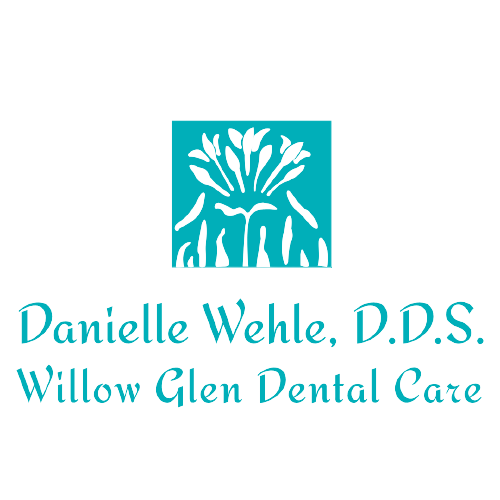Losing a tooth can be quite an unfortunate incident, whether it's due to injury, decay, or any other reason. While some may brush off the idea of replacing a lost tooth as merely cosmetic, the truth is that it goes far beyond just appearances. The consequences of not replacing a missing tooth can have lasting effects on your oral health and overall well-being. So, if you've recently lost a tooth or know someone who has, buckle up and dive into this informative blog post! We'll explore why replacing lost teeth is crucial for your dental health and how you can go about doing so effectively. Let's get started!
The Consequences of Not Replacing Lost Teeth
When a tooth is lost and not replaced, it may seem like a minor inconvenience at first. However, the consequences can be far-reaching and more severe than you might imagine.
One of the most noticeable effects of not replacing a missing tooth is the impact on your appearance. Gaps in your smile can make you feel self-conscious and affect your confidence when interacting with others. But aesthetics aside, there are deeper issues at play.
Adjacent teeth can begin to shift or tilt into the empty space left by the missing tooth, disrupting the alignment of your entire dental arch. This misalignment can lead to bite problems, such as difficulty chewing or speaking properly.
Furthermore, when a tooth is lost, it leaves an empty socket where bacteria can thrive and cause infection. These infections can spread to neighboring teeth or even penetrate deeper into the jawbone if left untreated.
Over time, bone loss in the jaw may occur due to lack of stimulation from biting and chewing on that particular area. This bone deterioration weakens surrounding teeth and can result in further tooth loss down the line.
Not replacing lost teeth also puts increased pressure on remaining teeth as they have to compensate for gaps during chewing. This added stress increases their risk of fracture or damage over time.
In addition to these oral health issues, there are broader impacts on overall well-being too. Difficulties with eating certain foods due to missing teeth may result in poor nutrition choices or dietary restrictions that negatively affect one's health.
Neglecting to replace lost teeth goes beyond mere cosmetic concerns; it has significant implications for both oral health and quality of life. So let's explore how we can address this issue effectively!
How to Replace Your Teeth
Replacing lost teeth is essential for maintaining oral health and restoring your smile. Thankfully, there are several options available to help you replace missing teeth.
One common option is a dental implant, which involves surgically placing a titanium post into the jawbone to serve as an artificial tooth root. This provides a sturdy foundation for attaching custom-made dental crowns that look and function like natural teeth.
Another option is dentures, which are removable appliances that can replace multiple missing teeth. Dentures come in different types, including complete dentures for replacing all of your upper or lower teeth and partial dentures for filling gaps between existing teeth.
For those who prefer a less invasive approach, dental bridges can be used to replace one or more missing teeth by anchoring them to adjacent healthy teeth. Bridges are custom-made prosthetics that blend seamlessly with your natural smile.
When considering how to replace missing teeth, it's important to consult with a qualified dentist or prosthodontist who can assess your specific needs and recommend the best solution for you.
Remember, replacing lost teeth not only improves the appearance of your smile but also maintains proper chewing function and prevents further oral health complications. So don't hesitate - explore your options today!
Conclusion
The importance of replacing lost teeth cannot be overstated. Not only does it affect our physical appearance and self-confidence, but it also has significant implications for our oral health and overall well-being.
Neglecting to replace missing teeth can lead to a host of consequences. These include shifting of surrounding teeth, loss of bone mass in the jawbone, difficulty chewing and speaking properly, and an increased risk of gum disease and tooth decay. Additionally, the absence of teeth can impact facial structure over time, causing sagging or drooping.
Fortunately, there are several options available to replace missing teeth. Depending on your specific needs and preferences, you can consider dental implants as a long-lasting solution that mimics natural teeth both in functionality and aesthetics. Another option is dentures or removable partial dentures, which offer flexibility at a more affordable cost.
When considering replacement options for lost teeth, it's crucial to consult with a qualified dentist who will assess your situation comprehensively and recommend the most suitable treatment plan tailored to your individual needs.
Remember that by addressing tooth loss promptly through appropriate replacement methods, you not only regain your smile but also protect your oral health for years to come.
So don't delay – take action today! Schedule an appointment with our dentist to explore the best way forward in reclaiming those missing pearly whites. Your smile – and overall well-being – deserve nothing less than the very best care possible!
More Blog Posts
Office Hours
MON8:00 am - 3:00 pm
TUE - THU8:00 am - 5:00 pm
FRI - SUNClosed





